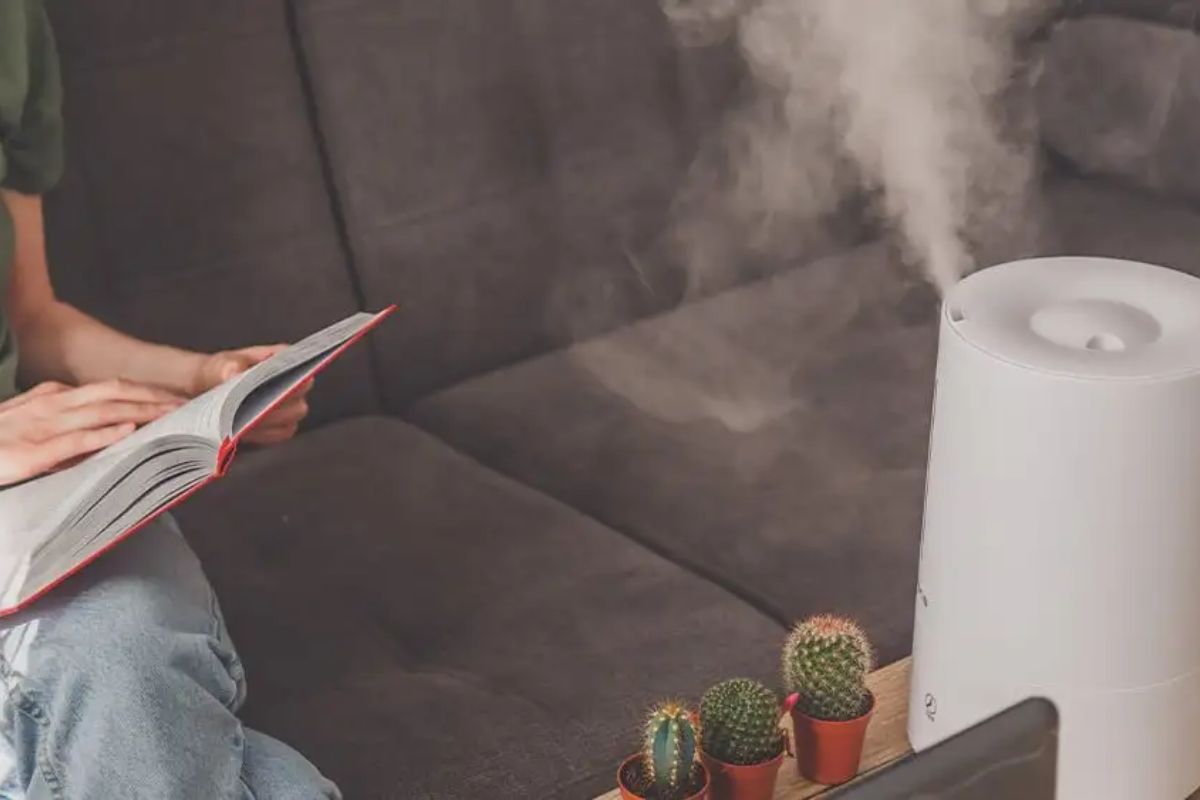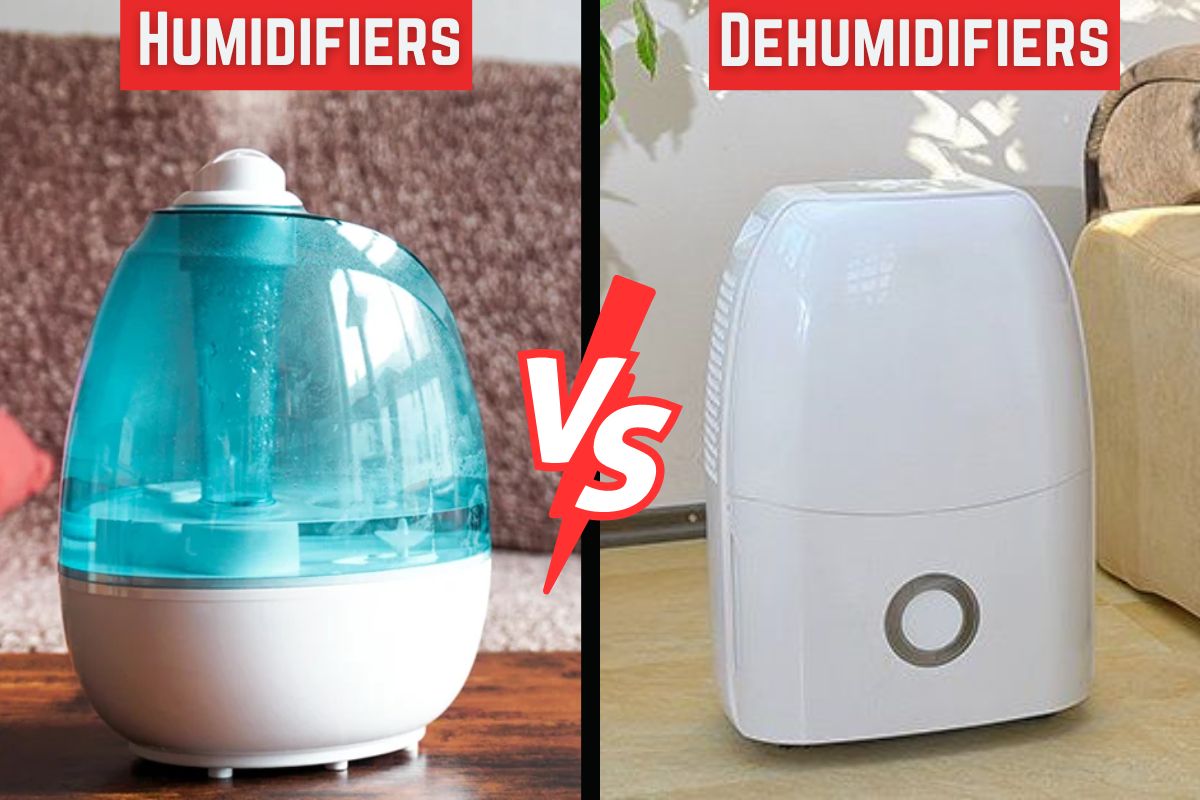Newly appointed CEO, Albert Fouerti, shared with us his wealth of experience with humidifiers and dehumidifiers. According to him, it isn’t easy to retain a good humidity level at home. Also, whether you use a humidifier or a dehumidifier is based on the air’s humidity or dryness. Fouerti was formerly an Appliances Connection CEO and Goedeker President. He is a dedicated investor who has invested in the appliance industry.
Why You Need A Humidifying System
A human body needs 30 percent – 50 percent humidity to prevent ill health. But it’s hard to maintain this in harsh weather conditions. For example, excess air moisture or dryness makes it difficult to control the humidity. And since excess air moisture or dry air is bad for the body, you should control the room’s humidity. Fortunately, the market is full of dehumidifiers that lower the humidity level and humidifiers that boost the humidity level of the air.
Are Humidifiers and Dehumidifiers The Same?


According to Albert Fouerti, a house with abundant humidity requires dehumidifiers in the rooms to extract moisture from the humid air. Dehumidifiers are specifically made for summer and spring. Additionally, dehumidifiers expel the stale, sticky sensation from a house with much humid air. Not only that, they regulate seasonal allergies some people have due to humidity.
Alternatively, a house with low humidity and dry air requires humidifiers to give its rooms air moisture. Unlike dehumidifiers, humidifiers are normally used in winter to eliminate the dry cold air
How To Know A Room’s Humidity Level?
You may calculate your room’s humidity level using an apparatus called a hygrometer. The hygrometer will tell you if the room requires a dehumidifier or humidifier.
Signs Your Skin And House Are Reacting To Bad Humidity
We all want to feel comfortable in our homes and breathe in good air. However, if you notice something different about the air you breathe in at home, get a hygrometer. The measuring instrument will determine the type of humidifying system your house needs.
-
Effects Of Low Humidity On The Skin
If you are experiencing chapped lips and your skin itches, it shows the humidity of your house/room is low. Another sign is eye dryness and itchiness. Then it’s time to buy a humidifier! A humidifier helps to lessen symptoms of some health conditions such as nasal congestion, allergic reactions, and chest congestion.
-
Impacts Of Low-level Humidity On A Building
For musicians, the percentage of humidity your building needs is 40 percent. This is to maintain your musical instruments, otherwise, the instruments will crack or craze. Anything higher than 50 percent is simply disastrous. The house/room will grow dust mites, bacteria, and molds. These organisms can destroy your building and any furniture in it. The reason is that low air moisture in a house causes leather furniture, wooden beams, and others to crack.
-
How High Humidity Affects A House Or Room
It is good to constantly inspect your house. If you detect your room or house is growing spores, mildew, and dust mites, then the humidity is high in that place. This means the humidity level is high and needs to be controlled. Furthermore, check if any wall or ceiling has indications of dampness. Or find out if you feel stuffy anytime you enter a room or stay in a particular area. Note that too much air moisture facilitates the growth of molds in your house, which is a bad thing. If these things mentioned above happen, it is time to do something about it. Place dehumidifiers in each room in the building to reduce air moisture.
-
Health Consequences Of Excess Air Moisture
The growth of these organisms mentioned above is harmful to asthmatic individuals and people with allergies. An asthmatic individual whose condition is triggered by high humidity must have dehumidifiers. Dehumidifiers are very important in hot seasons.
Relationship Between The Weather And Humidity
-
High humidity
Houses generally have increased humidity during summer, which makes the inhabitants uncomfortable. It is hard to control pests if the building has excess moisture. Insects that destroy woods like termites and beetles especially love damp areas. You can also find carpenter ants running amok in a damp building. If you have plants in a house with high moisture, the plants can easily get diseases.
-
Low humidity
Whereas the air is cold and dry in the winter season. Using a heater doesn’t help, as it’ll remove moisture from the already little moisture the air has. This worsens the air in the home and increases dryness in the air. For plant lovers, dry air means that your plants must be watered as much as possible.
Size and Maintenance Of Humidifying Systems
Manufacturers of appliances like a dishwasher, and humidifiers have made portable humidifying systems. But it requires a lot of time to maintain them. In addition, if your building has several rooms, you have to buy a humidifier or dehumidifier for each room.
Alternative solutions are to purchase dehumidifiers or humidifiers that are installed together with HVACs. These humidifying systems are integrated into your house’s HVAC system. Therefore, it is easier for the HVAC system to adjust and control the dehumidifiers and humidifiers automatically.
Conclusion
Lastly, Albert Fouerti said that HVAC integrated with humidifying systems are excellent choices for the home. Such HVACs are automated to change the humidity level according to the inside and outside temperature of the building. So if you are considering buying a humidifying system, buy an HVAC system with humidifying units.
















